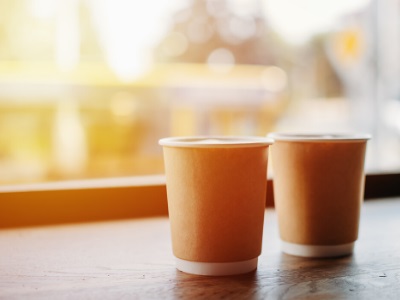13 May 2020

“The key practices of these outlets must be to observe social distancing rules and to follow good hygiene protocols, reverting to single-use plastic food ware will not help,” said Toby Hutcheon, Boomerang Alliance Campaign Coordinator.
“When it comes to plates, cutlery and containers used in hospitality services, it is not the food ware that is the issue but it’s safe handling. Single-use plastic food ware does not make a venue safer – it can continue to use its own crockery and cutlery that can be washed and handled safely.”
According to advice published by the Victorian Government, “there is currently no evidence to suggest there is any benefit in switching to disposables. The most effective measures you can take are practicing good hand hygiene and cleaning, with particular focus on shared frequently touched surfaces.”[efn_note]COVID-19 Advice and FAQs: Information for EHOs and food businesses – Victorian Government Health Services Fact Sheet March 2020[/efn_note]
The Australian Restaurant and Catering Association Best Practice COVID-19 Guidelines for Cafes (May 2020) back this up, stating:
“Non-disposable crockery/cutlery/glassware permitted when cleared after each course and washed using a commercial grade dishwasher or glasswasher only.”
“The promotion of plastic plates and cutlery in cafes and restaurants as a primary response to COVID-19 café and customer safety must be challenged. It does not make a restaurant or café safer, it makes it less likely that patrons will return if they have to eat using plastic food ware, it will unnecessarily increase plastic waste and litter, and it will add to costs for food outlets as they rebuild their business.”
The Boomerang Alliance Plastic Free Places program last month released a Café Guide on Reusable Takeaway under COVID-19 which showed that changing practices for BYO containers resulted in a ‘contactless’ service that was safer than providing disposable coffee cups or disposable food containers.
Cafes, restaurants and food outlets planning to reopen can similarly apply practices for the safe handling of their own crockery and cutlery. Café and restaurant crockery and utensils are properly washed on site, stored in a clean location and handed straight to individual customers when needed. Hospitality businesses then have total control of their food ware handling, a situation that cannot be claimed for delivered single-use, disposable plastics.
“When it comes to menus, we suggest discarding table menus and using display menus and giving customers access to on-line menus through their phones. Bulk condiment containers (washed after each use) are safer than sachets, constantly handled, and not easily cleaned.”
“As many governments, with the support of the hospitality industry, move to reduce unnecessary and problematic single-use plastics, Australia needs to address COVID-19, without reverting to practices likely to cause more waste and plastic pollution.”
“Nor should new legislation banning use of single-use plastics be delayed.”
Find out more about Wildlife Queensland’s Single-use Plastic Free Queensland campaign.
Related articles
